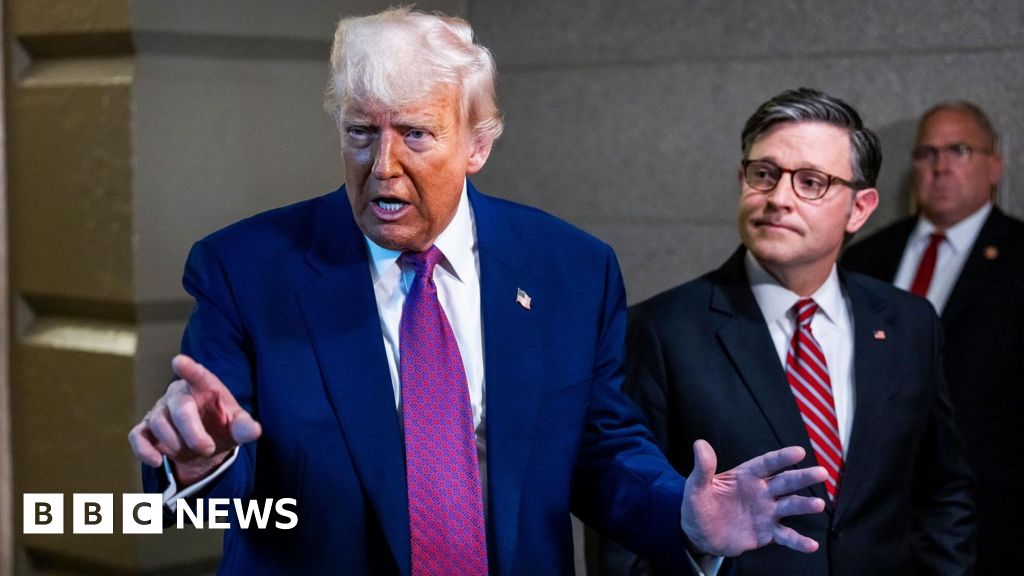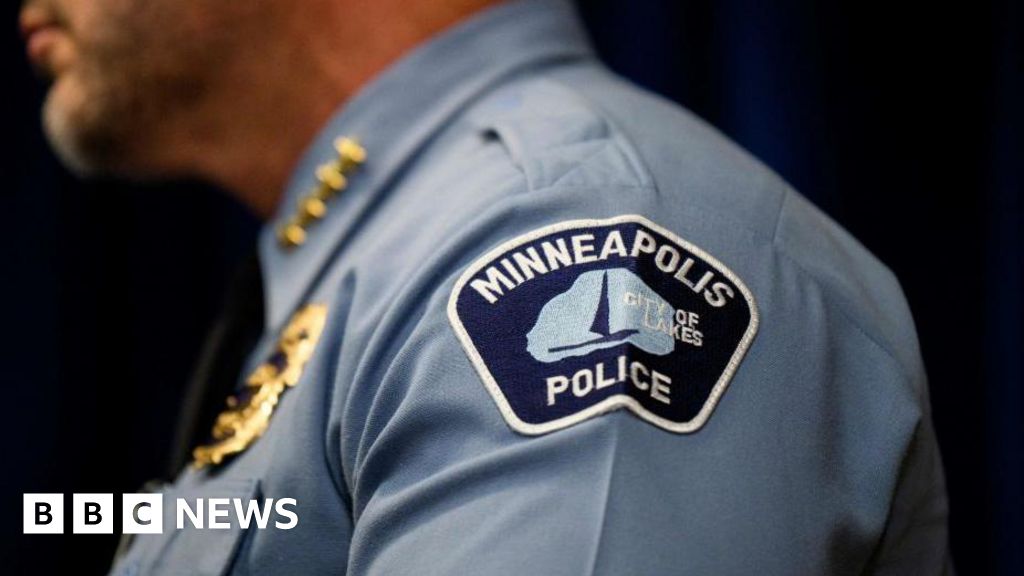ARTICLE AD BOX
Watch: Police raid Columbia University over Gaza protests
By Phil McCausland
BBC News, New York
A police officer accidentally fired his gun on the Columbia University campus while clearing pro-Palestinian protesters from a building on Tuesday, the New York Police Department said.
No one was injured, and the bullet was found in a nearby wall.
The matter is being investigated, city officials said.
Police arrested 112 protesters this week after college leaders sought help clearing the Manhattan campus - a move that fractured the school community.
The NYPD said in a statement on Thursday night that an unnamed Emergency Service Unit officer was using a firearm's flashlight attachment to illuminate a barricade inside Hamilton Hall, which protesters occupied after being ordered to disperse.
An officer fired a single shot into a wall a few feet away. The NYPD said it immediately investigated the incident and determined it was an accidental discharge. No student was near the area when the shot was fired, officials said.
The police force did not publicly disclose the gunshot or its internal probe, however, until The City, a local news organisation, reported the matter.
Image source, Getty Images
The officer's body camera captured the shooting, and the Manhattan District Attorney's Office was given the footage for its Police Accountability Unit to review.
Columbia University President Minouche Shafik called the NYPD to the campus Tuesday to clear Hamilton Hall, a school building that protesters occupied on Monday night. It was the second time Ms Shafik had police on campus in response to the pro-Palestinian encampment.
Students and faculty will have very limited access to the campus for the remainder of the year, just weeks before the semester's end. The university announced that all finals would be online.
Police released video of prying open doors, climbing through a second story window and clearing chairs and desks from stairwells in Hamilton. While the footage seemed to show that protesters had caused minor damage, it did not show a violent response from them.
University students told the BBC earlier this week that the police acted "rough and aggressive" toward protesters, though the NYPD has denied this.
The police said protesters detained on Tuesday were charged with a variety of offences: burglary, obstructing governmental administration, criminal mischief, resisting arrest, trespassing and disorderly conduct. NYPD data showed that about 29% of those arrested on campus were not affiliated with the university.
Image source, Getty Images
The protests at Columbia University have helped to spark a greater US student movement to call attention to the conflict in the Gaza Strip, which the Hamas-led health ministry says has killed more than 34,000 Palestinians.
The BBC has found that there were nearly 140 campus protests or encampments in response to the war in Israel, which followed Hamas's 7 October attack that killed 1,200 Israelis.
The students are demanding that their schools divest from arms manufacturers as well as institutions and businesses affiliated with Israel. They also want schools to publicly disclose their institutional investments.
Some universities have been able to end the pro-Palestinian protests peacefully. The University of Minnesota and Rutgers University announced on Thursday that they struck agreements with protesters to clear encampments.
In exchange, school administrations agreed to consider the students' divestment demands and make their investments publicly accessible.
But most protests have not ended as harmoniously, particularly in recent days.
Police cleared demonstrators from an encampment at the University of California, Los Angeles, on Wednesday arresting about 200 people.
At Portland State University in Oregon on Thursday, authorities removed protesters from a library building and detained dozens of students.
Early on Friday morning, student organisers said that the NYPD put 50 protesters at New York University and the New School on prison busses and removed them from encampments in downtown Manhattan.
US President Joe Biden has urged pro-Palestinian protesters on university campuses to uphold the rule of law.
"We are a civil society, and order must prevail," Mr Biden said from the White House, in his first direct remarks about the wave of student demonstrations.

 1 year ago
89
1 year ago
89








 English (US) ·
English (US) ·